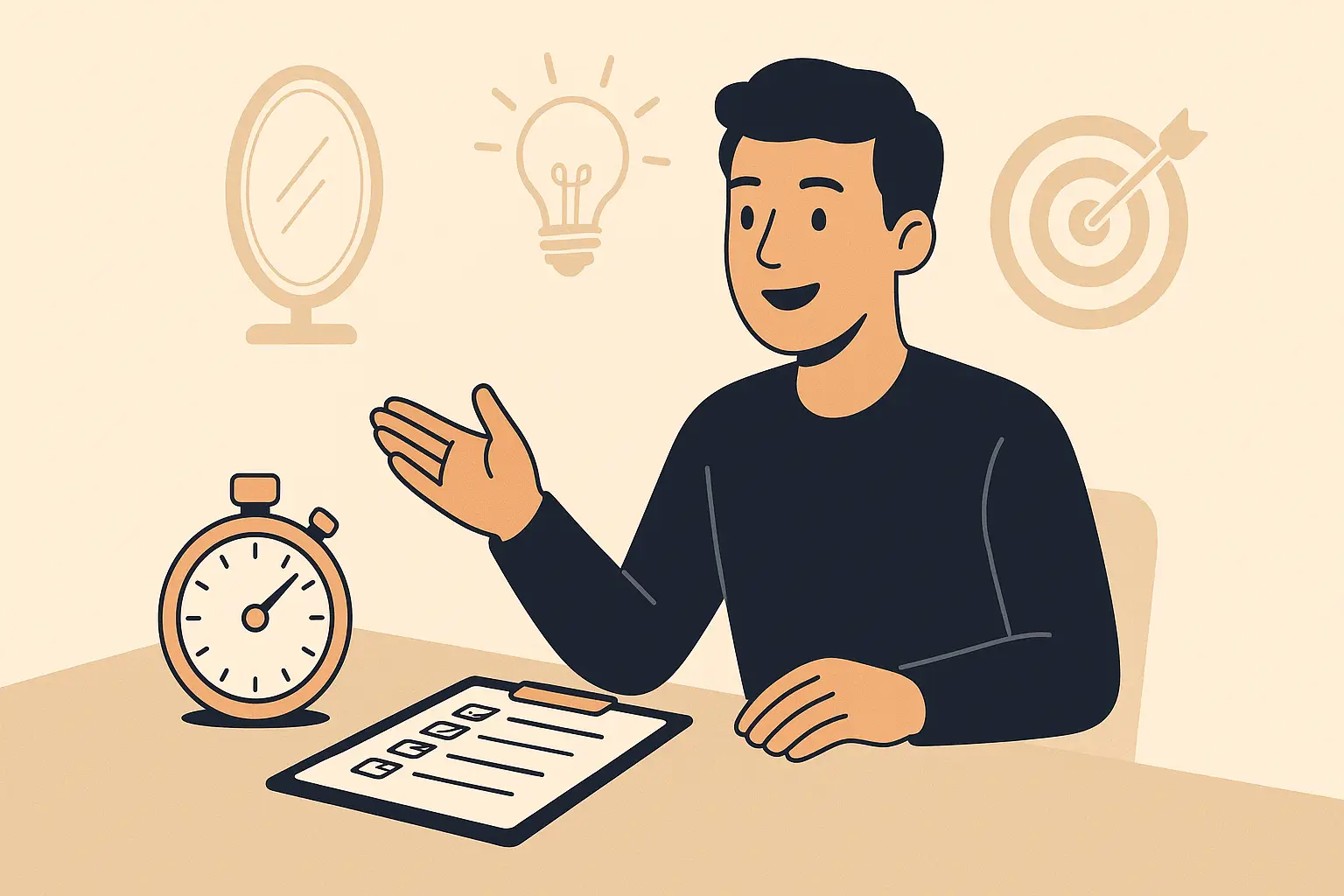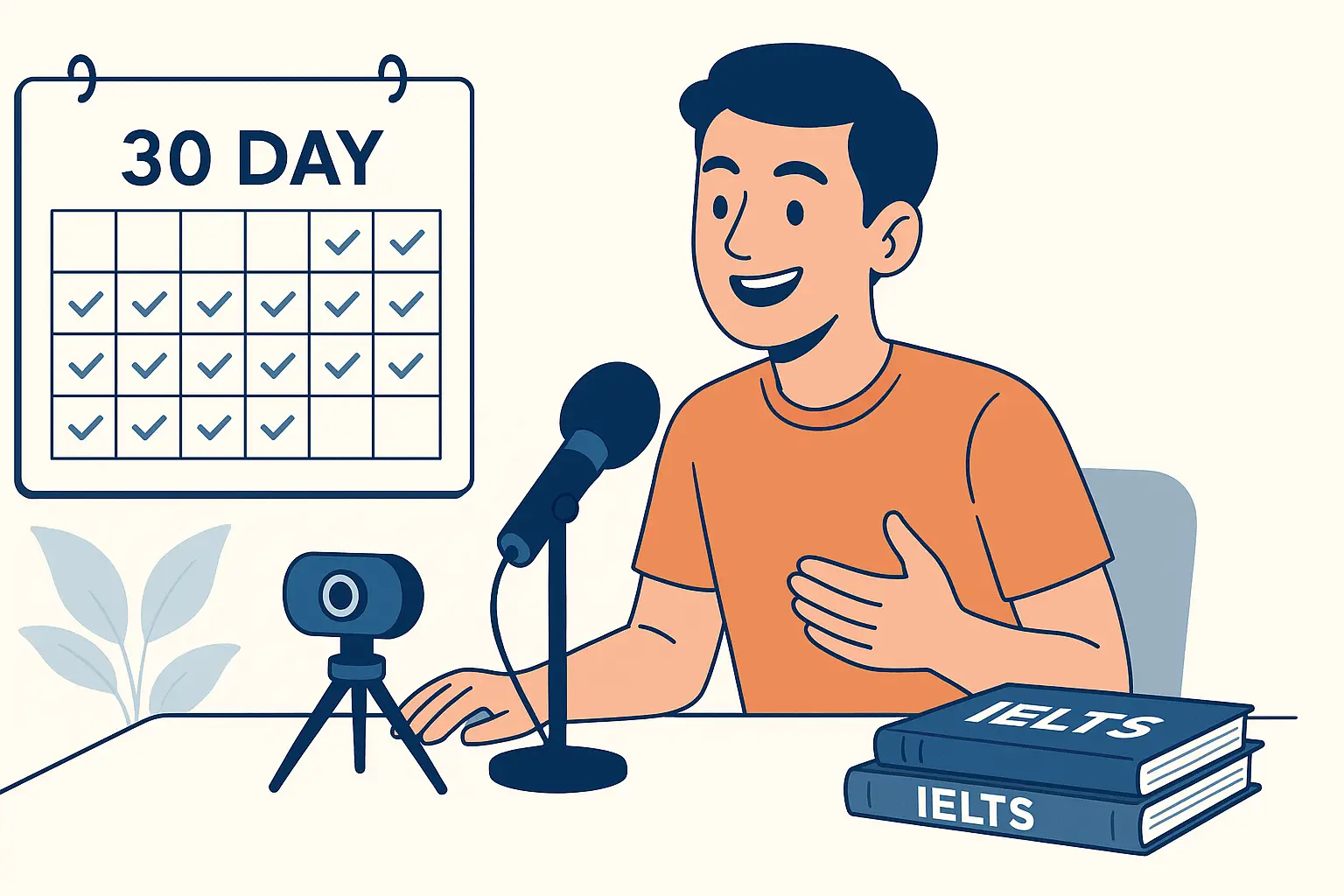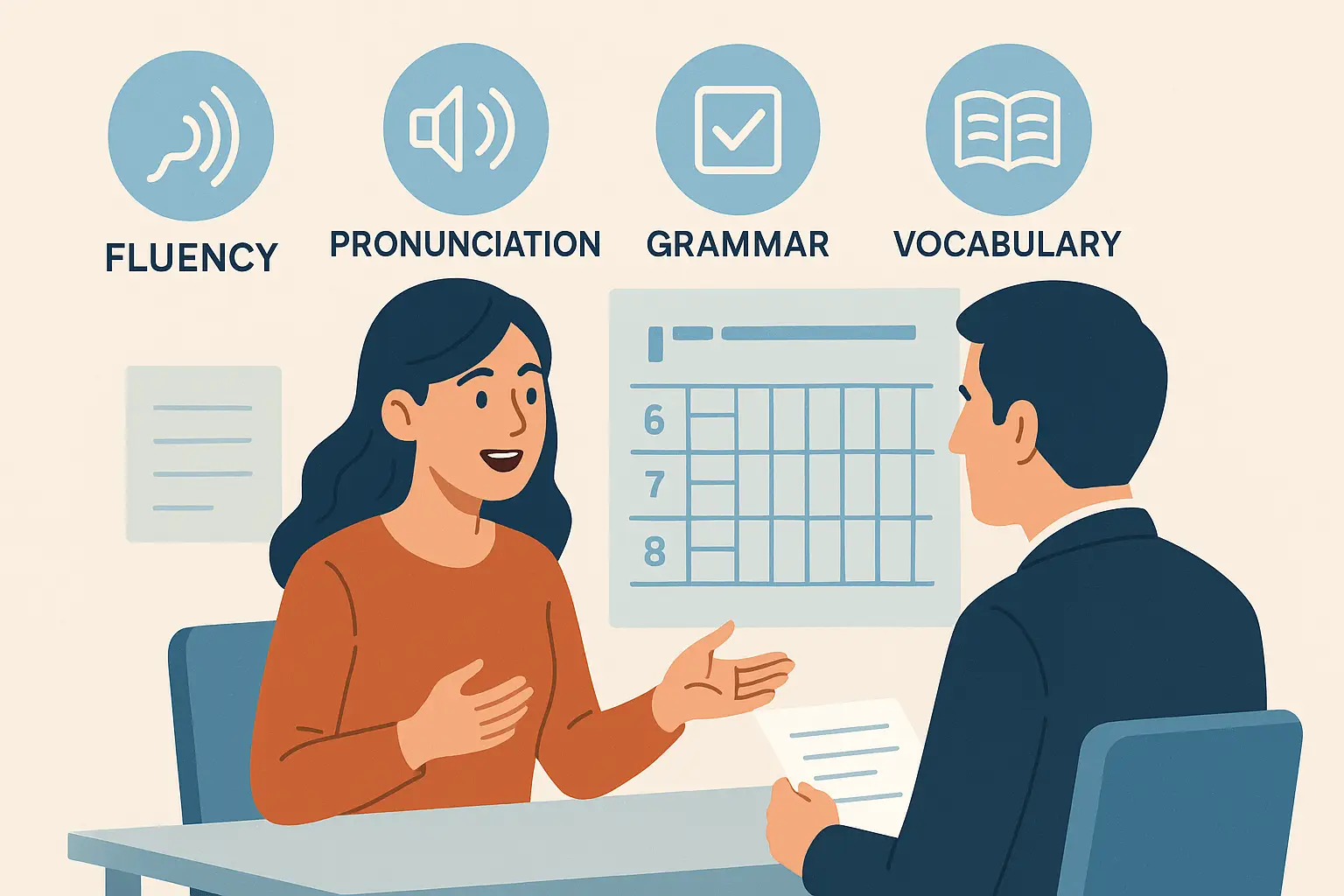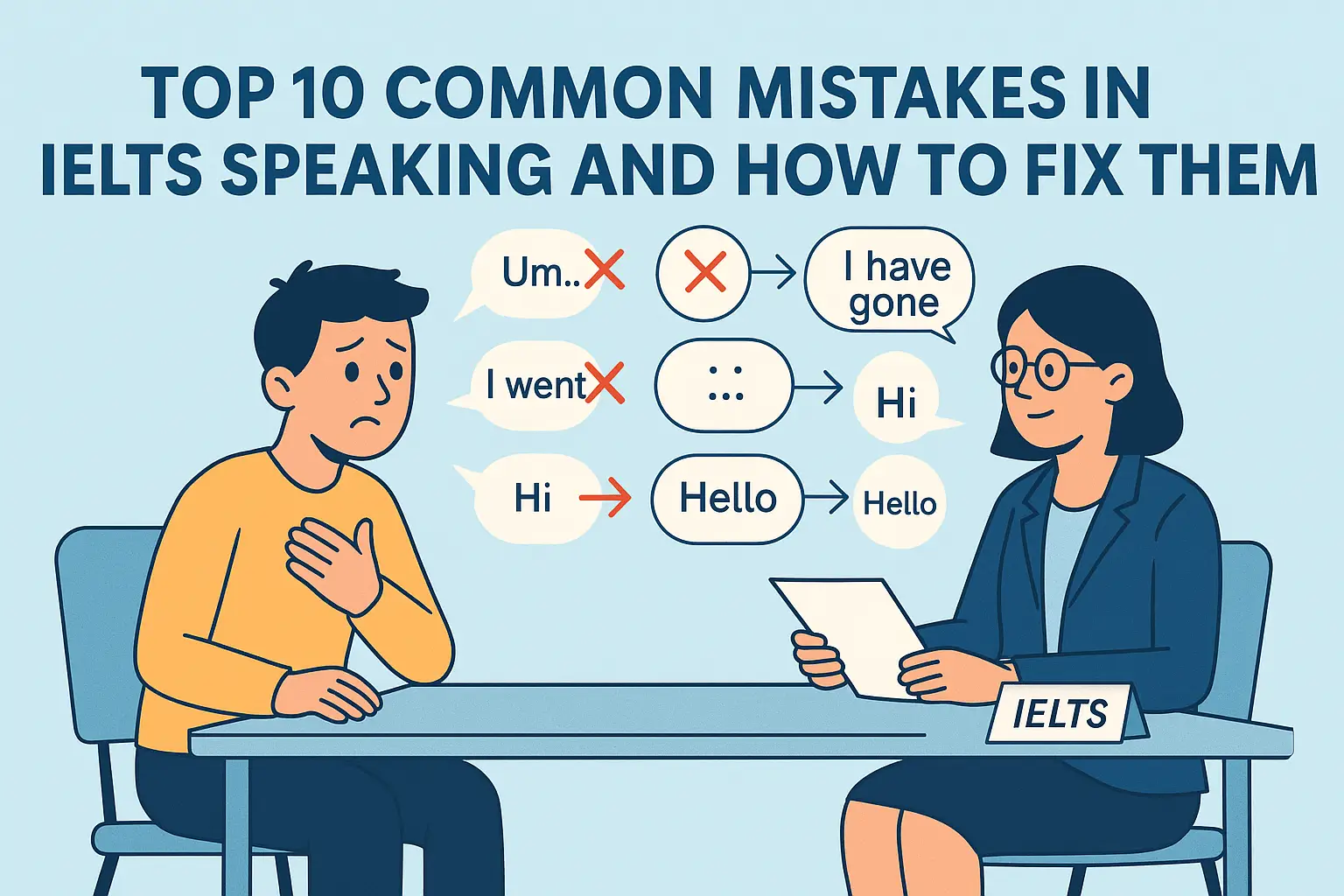When students ask me how to boost their IELTS Speaking score, I always start with this: nothing beats a well-planned IELTS Speaking Mock Test followed by honest, guided self-assessment. In my years teaching learners around the world, I’ve seen nervous speakers transform into confident communicators just by mastering this practice-reflect-improve cycle.
In this guide, I’ll share the exact strategies I’ve used with students preparing for the IELTS Speaking test and how you can use self-assessment to catch mistakes before the examiner does.
Why Practice with Mock Speaking Tests?
If you’re preparing for the IELTS Speaking test, it’s easy to focus only on learning vocabulary or grammar. But what many students overlook is the importance of realistic practice under test conditions.
For example, one of my students from Morocco could speak fluently in class but stumbled during her first real mock test. Why? She had never timed herself, never rehearsed the full three parts in sequence, and never reviewed her responses.
The IELTS Speaking Mock Test bridges that gap. It prepares you psychologically and practically. You’ll know what to expect, how to pace yourself, and—most importantly—how to review and improve based on your own performance.
What Makes a Good IELTS Speaking Mock Test?
I always advise my students to simulate the real exam environment as closely as possible. That means:
- Using a timer for each part (4–5 mins for Part 1, 3–4 mins for Part 2 including prep time, and 4–5 mins for Part 3)
- Recording your answers clearly
- Avoiding long pauses and hesitation
- Using natural language, not memorised scripts
You can find official speaking test formats on British Council and IDP IELTS, which I recommend checking before starting any mock test sessions.
And of course, don’t forget to read this in-depth guide from my platform: IELTS Speaking Complete Guide.
How to Do Self-Assessment Like a Pro
Once you complete your IELTS Speaking Mock Test, it’s time for self-assessment. But don’t just rate yourself randomly—use the same band descriptors examiners follow:
Fluency and Coherence
Did you speak without unnatural pauses or repeating yourself? Could someone follow your train of thought easily?
Lexical Resource
Did you use topic-specific words? Did you avoid repeating simple words like “good”, “nice”, and “thing”?
Grammatical Range and Accuracy
Did you vary your sentence structures—simple, compound, complex? Were your tenses consistent and accurate?
Pronunciation
Could you be clearly understood? Did your intonation, stress, and rhythm sound natural?
💡 I often have my students listen back to their recordings with a checklist and mark what they notice. One student in Vietnam found she overused fillers like “you know” and “like”—something she fixed in under a week with focused practice.
To build this habit, I recommend reading this internal article next: Practice Strategies & Common Mistakes.
Common Mistakes I’ve Seen (and How You Can Avoid Them)
1. Ignoring Timing
One student recently submitted a 7-minute response for Part 2. In the real test, this would’ve been cut off after two minutes. Always use a stopwatch to stay within the limit.
2. Overusing “High-Level” Words
Using complicated words incorrectly can hurt your score. Saying “exacerbate the happiness” instead of “increase the happiness” sounds unnatural. Stick with vocabulary you can use accurately.
3. Lack of Self-Review
Many learners don’t listen to their mock recordings. But your voice gives away everything—from fluency breakdowns to grammar slips. Embrace the awkwardness and listen back. That’s where real growth begins.
My Speaking Success Formula for Students
Here’s what I recommend as a weekly routine:
- 2 Mock Speaking Tests per week
- Record & Review each test with IELTS band criteria
- Note 3–5 areas to improve
- Practice those weaknesses with drills or mini tasks
Repeat weekly, and you’ll not only improve your score—you’ll boost your confidence, clarity, and speaking stamina.
FAQ: IELTS Speaking Mock Test & Self-Assessment
🔹 How many mock speaking tests should I do before the real exam?
I recommend at least 6 full mock tests spaced over 3–4 weeks. Quality and self-assessment matter more than quantity.
🔹 Can I self-assess my speaking skills accurately?
Yes, if you follow the official band descriptors and use recordings for review. Asking a teacher or study partner to double-check helps too.
🔹 Should I memorise answers for Part 1 and 2?
Absolutely not. Memorised answers sound robotic and hurt your Fluency and Coherence score. Focus on flexible sentence structures and natural examples.
🔹 What tools can I use to practise?
Use your phone’s voice recorder, a timer app, and a simple IELTS checklist for self-assessment. Pair with official materials from IELTS.org and platforms like British Council for reliable questions.
Final Thought:
The IELTS Speaking Mock Test isn’t just a practice tool—it’s your mirror. It reflects your strengths, highlights your blind spots, and gives you full control over your performance. Combine it with self-assessment, and you’ll never walk into the test room unprepared again.
If you’re serious about mastering IELTS Speaking, I invite you to explore more on IELTS ZONE—your no-fluff guide to band 7 and beyond.






2 Responses
Heya i’m for the primary time here. I came across this board and I in finding It really useful & it helped me out a lot. I’m hoping to provide one thing again and aid others like you aided me.